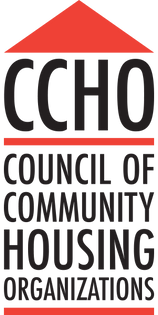Affordable Housing Looms Large in San Francisco’s Fall Election
The November ballot will contain two different ballot measures both aiming to increase the supply of affordable housing in San Francisco.
With Proposition A, the city seeks $600 million in bond funding to construct, fix, preserve, and acquire affordable housing. That money breaks down like so: $150 million for public housing, $220 million for low-income housing, $60 million for middle-income housing and preservation, $150 million for senior housing, and $20 million for educator housing.
Mayor London Breed, Board President Norman Yee, and a working group crafted the bond with backing from the Board of Supervisors. It requires a two-thirds majority vote.
“We are in a housing crisis that is pushing out our low-and middle-income residents and we desperately need more affordable housing,” Breed said when the measure was approved for the ballot in July. “This bond will allow us to create more affordable homes for seniors, continue rebuilding our public housing throughout the city, begin construction on projects for low-income residents that are ready to be built today, and keep current tenants housed. Building more housing requires a wide range of solutions, and this bond is a key part of that effort.”
The other measure aimed at affordable housing is Proposition E. Known as Affordable Homes for Educators and Families Now, Prop. E would allow 100 percent affordable and educator housing to be built on public land.
San Francisco Unified School District reports that 64 percent of its teachers pay more than 30 percent of their income on housing, making them officially rent-burdened, and almost 15 percent spend more than half. The situation is even worse for other educators like daycare providers, teaching assistants, and kindergarten teachers in the Bay Area who tend to make less than $49,000, according to a study released in August by the Council of Community Housing Organizations.
“San Francisco educators have been pressing for better policies around housing issues for the last several years,” says Anabel Ibanez, political director for the United Educators of San Francisco. “Our communities need policies that keep our teachers in place, and protect families from being displaced from our neighborhoods.”
Prop. E had quite the journey to land on the ballot. Mayor Breed proposed changing the city’s charter via ballot measure in order to streamline the bureaucratic processes related to affordable and teacher housing approval. The language and process behind the charter amendment rubbed some supervisors and teachers unions the wrong way, however, and led to a rival ballot measure. After a few months of horse-trading, all the parties came together, merging various parts of each proposal.
“Working together, we have already put forward the largest affordable housing bond in the city’s history to provide more funding for low- and middle-income housing, but we also need to find more places to build that housing,” the group said in a joint statement. “Through this plan, we can open up more sites across our entire city for badly needed affordable and educator housing.”
Here are some of the other measures on the ballot:
Proposition B: City Agency Rebranding
This measure would rename some city agencies to more accurately reflect what they do so that people in need of their services will be more inclined to seek out their help. Specifically, the Department of Aging and Adult Services would get a new name: The Department of Disability and Aging Services.
Proposition C: E-Cigarettes
It was a bizarre clashing of headlines when Juul announced it had purchased a 28-story tower Downtown for its new headquarters the very same week that city supervisors banned the sale of e-cigarettes in S.F., pending an FDA review of their safety. Shortly afterward, news broke that the Juul-funded Coalition for Reasonable Vaping Regulation would draft a ballot measure to overturn the ban. Juul has spent more money — over $4.5 million — on trying to garner support for this measure than has been spent by everyone else regarding all the other ballot measures combined.
Proposition D: Traffic-Congestion Mitigation Tax
Lyft and Uber have run fairly unchecked in San Francisco over the past seven years, despite some efforts by city government. But a compromise appears to have materialized in the form of a 3.25-percent surcharge on individual rides and a 1.5-percent surcharge on shared rides. If it passes, the measure could raise up to $32 million a year for public transportation and street improvements. Both Uber and Lyft have agreed not to campaign against the tax.
Proposition F: Campaign Contributions and Campaign Advertisements
Those ads you see for measures typically comes with a note of a group that paid for it, typically a Super PAC, but the actual interests are shrouded.
Take this November’s Prop. C, which Juul has spent $4.5 million on passing. Proposition F would change that by requiring the disclosure of the names of the three largest donors of that committee and how much they donated. It also bars developer executives from donating to candidates or current elected officials like the mayor or supervisors while a project of theirs is awaiting approval or on year after a decision is made. Though there’s a ban on Limited Liability Corporations or Limited Liability Partnerships donating to candidates, the measure also closes a loophole that allowed such contributions to slip by.
Prop. F has the backing of Supervisor Gordon Mar, who placed it on the ballot, and Supervisors Matt Haney, Sandra Lee Fewer, Hillary Ronen, Rafael Mandelman, Aaron Peskin, Vallie Brown, and Board President Norman Yee.

